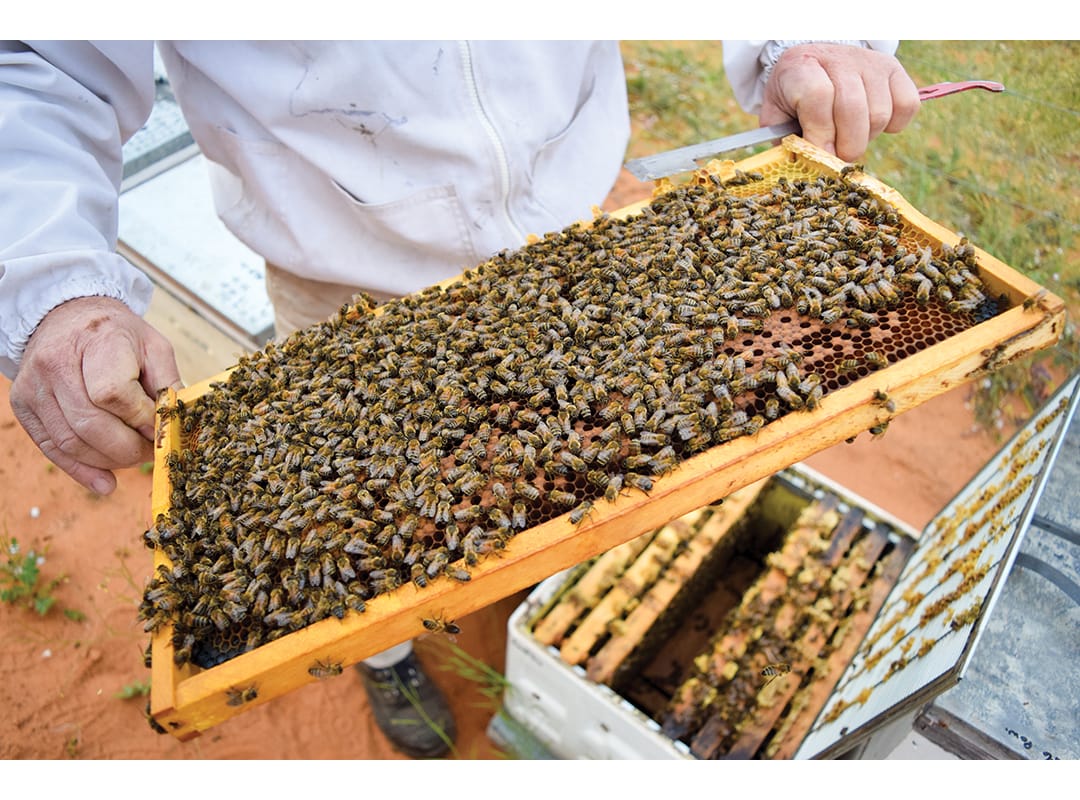Restrictions in place to combat varroa mite
Restrictions on bees, hives and associated materials entering the Riverland from New South Wales have been put into effect to protect the state from varroa mite.

RESTRICTIONS on bees, hives and associated materials entering the Riverland from New South Wales have been put into effect to protect the state from varroa mite.
These items cannot be brought into South Australia from New South Wales without written permission from the Department of Primary Industries and Regions, South Australia’s chief inspector of stock.
According to PIRSA, the movement restrictions apply to any of these items that have been in NSW since January 1, 2022, that may be seeking to enter SA from another state.
The movement of commercially processed honey, and new apiary appliances and hive components is allowed.
Permission by the chief inspector of stock is required for all other movement situations including:
- Beeswax comb (including comb containing brood and honey)
- Apiary products not covered by the commercial honey exemption
- Used beekeeping equipment and appliances, including beekeeping tools and plant, clothing, footwear, veils and gloves, hives and hive components
- Shipping containers that have contained any apiary products
- Vehicles used at apiaries or used to carry regulated articles.
SA varroa response incident controller Michael McManus said the state government is taking the varroa mite situation in NSW “very seriously”.
“These movement restrictions have been implemented to protect SA from varroa mite, which is considered the greatest threat to Australia’s honey, and honey bee pollination plant industries,” he said.
“Bee biosecurity is key to protecting the industry from pests and diseases, and every beekeeper has a responsibility to look after their hives.”
PIRSA is also aware of the upcoming almond pollination season and is examining options under which bees may be allowed to enter from NSW.
This would require a risk assessment to be conducted to determine options that would allow movement of bees from NSW to occur without posing an unacceptable risk to SA’s apiary and horticultural industries.
The state government is working closely with NSW Department of Primary Industries, the Australian Department of Agriculture, Water and Environment, pollination-dependent industries, including almonds, and the SA apiary industry through the national emergency plant pest response process.
PIRSA has set up an incident management team to stop the spread of varroa mite into SA.
Varroa mite does not affect native bee species.
If you detect or suspect varroa mite in your bees, email PIRSA.beebiosecurity@sa.gov.au or call the exotic plant pest hotline 1800 084 881.
For more information visit the PIRSA website.





